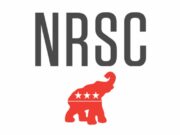Portland, ME — In a major victory for free speech, a federal magistrate judge has blocked the campaign finance restrictions created by Maine’s “Question 1,” ruling that those restrictions violate fundamental constitutional rights.
U.S. Magistrate Judge Karen Frink Wolf granted a permanent injunction in the Institute for Free Speech case Dinner Table Action, et al. v. Schneider, et al., preventing enforcement of the “Act to Limit Contributions to Political Action Committees That Make Independent Expenditures,” more commonly known as Question 1. The law imposed a $5,000 annual limit on contributions to groups making independent expenditures and required disclosure of all donors regardless of contribution size. Previously, Maine had already agreed not to enforce the law while the litigation proceeded.
The Institute for Free Speech (IFS) and local counsel Joshua D. Dunlap of Pierce Atwood LLP filed the lawsuit, representing Dinner Table Action, For Our Future, and Alex Titcomb in challenging the measure.
The court’s ruling aligns with unanimous federal precedent. Every federal appellate court to consider similar restrictions has found them unconstitutional, recognizing that independent expenditures—by definition not coordinated with candidates—cannot lead to corruption, starting with the D.C. Circuit en banc decision in SpeechNow.org v. FEC, which was also litigated by IFS.
Question 1’s $5,000 contribution limit would have devastated grassroots organizing. Over one-third of Dinner Table Action’s funding comes from donors who contribute above that amount, and For Our Future has been exclusively funded by contributions exceeding $5,000.
“This ruling reaffirms that the First Amendment protects citizens’ right to pool their resources for political speech,” said Institute for Free Speech Senior Attorney Charles “Chip” Miller. “The Free Speech Clause is not only for the wealthy few who can afford to get a message out individually. The rest of us can pool our money to speak, too. What’s more, Maine tried to silence independent voices while giving party bosses unlimited fundraising power, showing the law was designed to concentrate power. Today’s decision ensures all Mainers can participate equally in the democratic process.”
In addition, the injunction halts Question 1’s unprecedented disclosure requirements that would have forced groups to report all contributors regardless of amount—far beyond existing requirements for candidates or party committees.
“Dinner Table Action has hundreds of members who value the right to speak collectively. This injunction protects our, and every Mainer’s, fundamental right to join together and speak about elections,” said Alex Titcomb, Executive Director of Dinner Table Action. “I’m thrilled with this outcome, as it makes it clear that the government cannot restrict independent political speech or limit Mainers’ ability to speak about the issues that matter to them.”
Read the court’s decision here. Read the motion for permanent injunction and accompanying memorandum of law here. To read more about the case and review all related documents, please visit our case page here.
About the Institute for Free Speech
The Institute for Free Speech promotes and defends the political speech rights to freely speak, assemble, publish, and petition the government guaranteed by the First Amendment.














